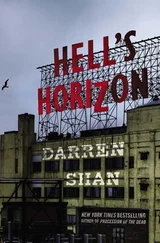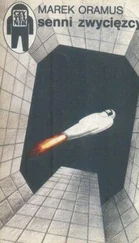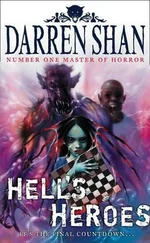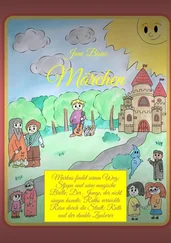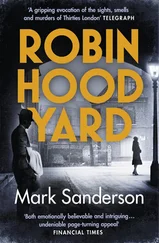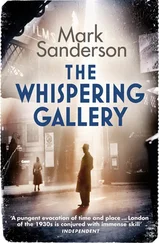With a final nod in Matt’s direction and a smarmy, “PC Turner, it’s been a pleasure,” the tiresome toff shot off, oozing self-assurance, seemingly oblivious to the female heads turning in his wake.
“The world is his lobster,” murmured Johnny.
“You’ve used that one before,” said Matt, watching Simkins sweep through the doors, arm already raised to hail a taxi. “Are you free tomorrow night?”
“I can be,” said Johnny without hesitation, hoping that Daisy, his latest cutie, would understand. A chorus girl who, of course, harboured acting ambitions, she had asked him to get tickets for Mazo de la Roche’s Whiteoaks , which had been running at the Little Theatre in John Adam Street since April. Daisy, who had a fiery temper and big breasts, would inevitably make a fuss at missing out on a promised treat, but he would enjoy making it up to her later.
“How about the Viaduct at seven?”
“Great. I’ll see you there.” Matt gave him the ghost of a smile and hurried towards the daylight.
Intrigued, Johnny watched his friend’s broad back negotiate the milling crowd.
Clearly Matt had heard something after all.
Johnny crossed Old Bailey and hurried down Fleet Lane. Weaving through the crowds of office workers on Ludgate Hill would take too long, and he was spurred on by the thought that, even now, Simkins was probably trying to find out what he had been talking to Matt about. Wondering how much his rival had heard of the conversation, he took a short cut through Seacoal Lane—a dark, narrow passage which burrowed under the railway from Holborn Viaduct Station—and emerged into Farringdon Street just before it gave way to Ludgate Circus. He was in the foyer of the Daily News before it occurred to him that he hadn’t eaten, so, spinning on his heel, he went straight back out again to the café next door. Three minutes later he was dropping crumbs over the piece of paper that had been preoccupying him all morning.
The newsroom was unusually quiet. Most of the reporters were out chasing stories or sinking a lunchtime pint in one of the dozen or so pubs that fuelled Fleet Street. A faint cloud of cigarette smoke lingered. Telephones went unanswered. Typewriters remained silent. Johnny preferred the place when, deadlines looming, it buzzed with barely controlled panic. He enjoyed the banter, the friendly rivalry which ensured he always tried his best. Moreover, since he’d found himself all alone in the world, his colleagues had become a sort of surrogate family, keeping the emptiness at bay.
He breathed in the sweet, acrid smell of ink from the presses on the ground floor. For once, it wasn’t mingled with the scent of a hundred sweaty armpits. Even in December, it was always hot in the newsroom. All around him, whirring fans fluttered papers on empty desks. Despite frequent requests from upstairs, no one ever bothered to turn off their fan or angle-poise lamp. The air of ceaseless activity had to be maintained at all times.
No matter how often he entered the newsroom, Johnny just couldn’t get over that sense of stepping out on to a stage. His heart rate would pick up each time he came through the door, and he still experienced the same adrenalin rush he’d felt on his first day in the job.
Four years on, he could not quite believe he had made it to a desk in the newsroom of a national daily. In the scheme of things, his was still a lowly position. In the newsroom, your place in the pecking order was reflected by your location in the vast maze of desks: the closer you were to the centre—where the news editor held court—the more senior you were. Johnny was only a couple of yards from the door.
Getting a foot in the door had been a struggle. With no connections in the industry, Johnny had had to do it the hard way. On leaving school a week before his fourteenth birthday—the same day Johnny Weissmuller broke his own hundred metres freestyle world record at the Amsterdam Olympics—the young would-be journalist had landed himself a job running editorial and advertising copy down to the typesetters. From Sunday to Friday, he would put in long hours at the day-job, then three nights a week he’d head off to evening classes at the Technical College to get his diploma in Journalism.
With working days that sometimes didn’t finish till after midnight, it had been difficult for Johnny to keep up with the rest of the group even though he was a quick learner. But he’d persevered, and armed with his shiny new diploma he’d secured a job on one of the local rags in Islington. Not that there seemed much call for a diploma; his tasks ranged from listing jumble sales, weddings and funerals; reporting committee meetings and company outings; casting horoscopes; concocting letters to the editor; compiling easy-peasy crosswords; and, most important of all, making tea. In the end it paid off though: his efforts got him the coveted position of junior reporter on the Daily News.
Much to his dismay, it turned out that his new role entailed doing exactly the same things.
Fortunately for Johnny, he’d been taken in hand by Bill Fox. An old hack with nicotine-stained fingers to match his yellowing short-back-and-sides, Bill had been in the business for more than forty years, working his beat even through the war years, asthma having kept him out of the army.
Perhaps Bill recognised something of himself in the eighteen-year-old human dynamo, or perhaps he was impressed by Johnny’s sharp mind and fierce ambition, then again, maybe he was just won over by the cheeky grin. Whatever the reason, Bill had begun teaching the newcomer everything he knew, ranging from the intricacies of the News ’ house style to the tricks of the trade: how to grab a reader by the lapels and not let him go, how to cut and cut until every word was made to work.
Each time Johnny delivered a piece of copy, Bill would lean precariously back in his chair and deliver words of wisdom, punctuating his speech by stabbing the air with the 2B pencil he kept behind his ear: “Remember, Coppernob, with the honourable exceptions of wine and women, less is more.”
But Bill’s advice went beyond the craft of writing and fine-tuning copy. He had covered subjects that Johnny’s Technical College diploma hadn’t touched upon. For him, journalism meant pounding the streets, ferreting out facts and stirring things up. While others his age had opted for a managerial role, sitting behind a desk telling others what to do, Bill preferred a more hands-on approach. He’d been delighted to have Johnny tag along as he demonstrated how to make the most of a lead, and to watch Bill in action was to enjoy a master-class in the art of interviewing reluctant witnesses and worming the truth out of those who were determined to bury it. Persistence, patience and curiosity were his watchwords.
As a result of this apprenticeship, Johnny learned how to turn to advantage the very things that might have worked against him: his deceptively young looks and short stature. He no longer minded being underestimated—if anything, he encouraged it. His job became so much easier when others lowered their guard.
Fox himself was prone to be underestimated by colleagues who judged him on his lack of promotion or love of booze, but to Johnny, he was a hero. Bill was the only person Johnny would tolerate calling him Coppernob—even though his hair was quite obviously strawberry blond.
The crime desk was, in reality, made up of six desks pushed together in a cramped corner of the third floor. These were occupied by a junior, four reporters—two for the day shift and two for the night—and the crime correspondent. Having made his way up from junior, Johnny was determined to gain his next promotion as soon as possible—preferably before his twenty-third birthday. Under a different boss, he would have been moving up the ladder much faster, but Gustav Patsel was a little bully in an age of bullies. While Hitler in Germany, Franco in Spain and Mussolini in Italy ranted and threw their weight about, Patsel swaggered and held sway in the newsroom. Everything about this cantankerous, capricious bore was round: his piggy-eyes peered out from behind round, wire-rimmed glasses. His white bald head was reminiscent of a ping-pong ball. His belly seemed to bulge more by the week: probably a result of too much bratwurst. Proud of his German heritage, Patsel was not shy of vaunting the führer’s galvanising effect on his homeland: the Volkswagen “people’s car”, designed by Ferdinand Porsche and launched in February, was the best car in the world; the Berlin Olympics in August had been the best games ever und so weiter —though he’d been strangely silent back in March when the Nazis invaded the Rhineland.
Читать дальше



